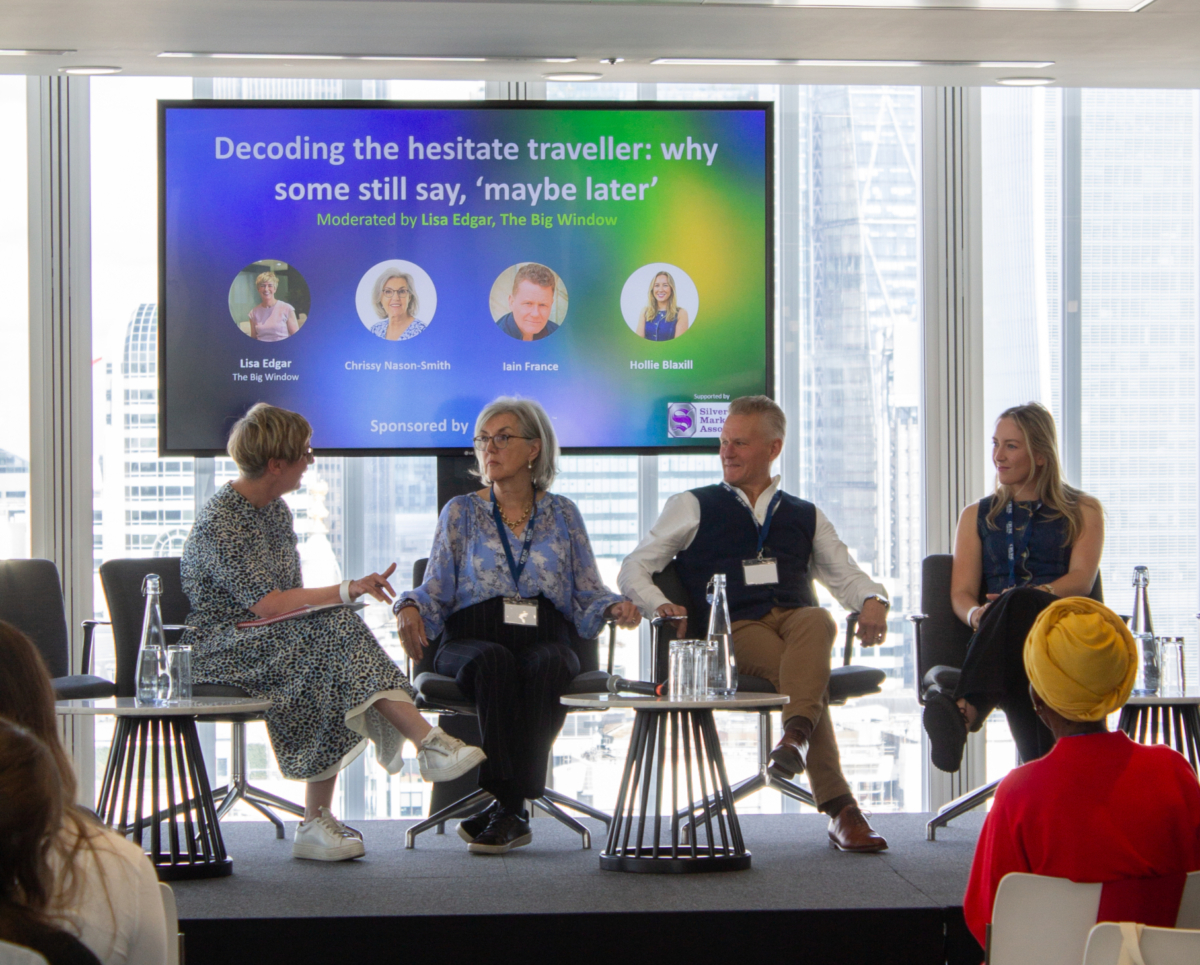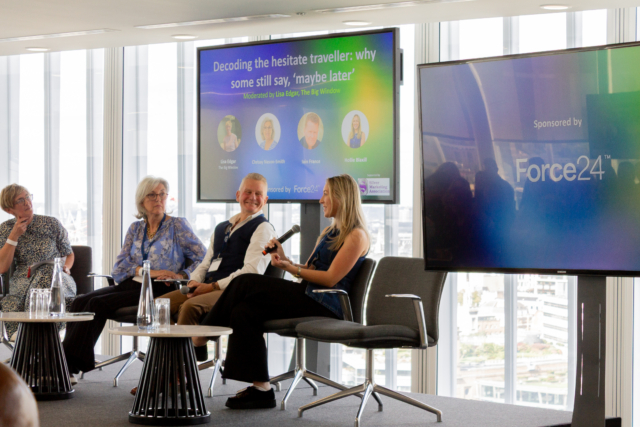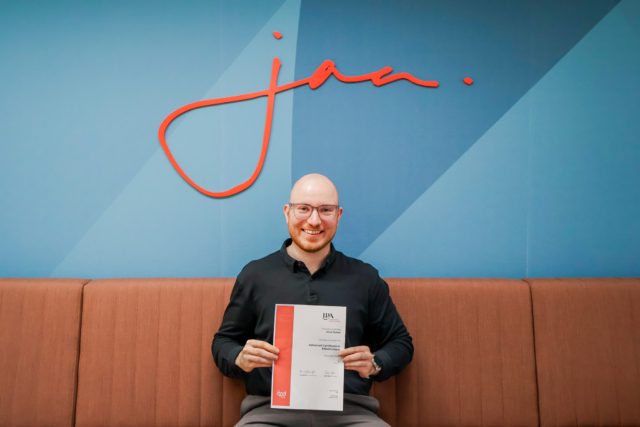Last month our team attended the Cruise Summit 2025, hosted by Cruise Trade News at the News UK HQ in London. Here are the standout insights from a jam-packed day exploring the industry…
The Cruise Summit 2025 made one thing abundantly clear: the future of cruising isn’t defined by age brackets or demographic clichés—but by mindset.
From retirees embracing a “die with zero” mindset, to young professionals chasing authentic experiences, the industry is redefining what it means to set sail. Across the day, three key themes surfaced. The power of destination, the demand for authenticity, and the changing face of the over-50s traveller. By the afternoon, attention turned to how technology and storytelling are reshaping how people discover and book cruises.
Destination: The Anchor of the Cruise Experience
If one word dominated every conversation, it was destination. For both seasoned cruisers and first-timers, the itinerary is the hook—and the ports of call are often the priority. In the session Decoding the hesitant traveller, one panellist put it, “the industry needs to sell the holiday, not the ship.”
Global growth: 36.4 million people cruise each year, with 31% new to cruising in the past two years.
Hot spots: The Mediterranean, Northern Europe, and the Caribbean remain favourites, while emerging routes—like the east coast of Africa and Antarctica, signal new opportunities.
Timing: UK travellers lean toward two-week trips; Americans favour shorter 5–7 day escapes.
FOMO is real: By flipping the narrative to highlight exclusivity—new ships, private islands, and lesser-known destinations—the industry can tap into travellers’ fear of missing out and create urgency around new experiences.
In short, destination drives desire—and storytelling around itineraries is more powerful than ever.

Authentic Experiences: Beyond the Deck
Cruising has moved beyond just sun decks and buffets. Today’s passengers are searching for immersive, meaningful experiences that resonate long after they disembark.
Breaking barriers: Simpler language and better agent education remain key to converting the cruise-curious.
Luxury redefined: Today, luxury means comfort, cuisine, and culture. From Nile sailings to Antarctic expeditions, travellers crave connection.
Value still matters: The all-inclusive peace of mind continues to attract price-conscious audiences.
Stories that sell: Emotional, authentic storytelling—from solo travellers to families reconnecting—is winning hearts.
New entrants shake things up: With brands like Ritz-Carlton, Four Seasons, and National Geographic entering the market, small-ship and specialist cruises are raising expectations and pushing the industry toward more tailored, authentic experiences.
Over-50s: From “Silver Travellers” to “Experience Seekers”
The over-50s are rewriting the rulebook. They’re living longer, travelling further, and rejecting outdated labels.
Shifting averages: The average UK cruiser’s age has dipped from 57 to 54, with more adventurous, experience-led travel emerging.
Financial freedom: By 2030, the UK will have 1.3 million retirees, 55% of whom don’t plan to leave an inheritance—choosing memories over money.
Mindset over milestone: These travellers are defined not by age, but by attitude. They’re seeking depth, connection, and adventure.
Language matters: Brands like Royal Caribbean are reframing “cruises” as “holidays,” recognising the need to modernise messaging and avoid dated terminology.
Balance brand and performance: Strong brand positioning combined with smart tactical campaigns will be key to reaching this audience. They’re loyal, influential, and ready to spend.

Evolving the Funnel: From Conversion to Connection
The afternoon sessions explored how marketing models are shifting in step with traveller behaviour. The traditional funnel—awareness, consideration, conversion—is giving way to a more fluid customer lifecycle. Here, engagement doesn’t end at booking.
WhatsApp takes off: Brands are using WhatsApp Business Messaging to deliver end-to-end journeys—letting travellers research, chat, and even book via text or voice AI.
Human meets AI: Data can detect signals, but empathy drives conversion. The blend of automation and authenticity is where loyalty lives.
#CruiseTok and the New Age of Discovery
Ola Quadrio, Head of Travel, Client Solutions at TikTok, shared how the platform is shaping travel discovery:
“The journey starts on TikTok.” One in two users posts about their holiday.
#TravelTok dominates: Travel is the fastest-growing category, with an average user age of 30.
Cruise curiosity: Cruise sits in the top 10 travel searches, blending perfectly with top categories like beach breaks, nightlife, and adventure.
TikTok is now a discovery engine—and for cruising, a gateway to new audiences.

The Voice of the Ocean: Storytelling That Resonates
In the session From Reach to Resonance, leaders from ITV, Meta, Google, and TikTok explored how storytelling and emotion create lasting loyalty.
ITV’s Adrian Last highlighted the “Voice of the Ocean” campaign with Princess Cruises, showing how entertainment-led storytelling can transform passive audiences into passionate travellers. The takeaway: in a world of infinite content, resonance beats reach every time.
Conclusion: Cruising Into a Mindset Revolution
The Cruise Summit 2025 underlined that the industry isn’t just selling ships anymore—it’s selling stories.
Travellers today want more than a holiday. They want to see the world, live their bucket lists, and feel their journeys reflect who they are now, not the number on their passport.
For the over-50s especially, it’s about attitude, not age. For younger audiences, it’s about connection over convention. And for marketers, it’s about merging technology and storytelling to meet travellers in the moments that matter.



